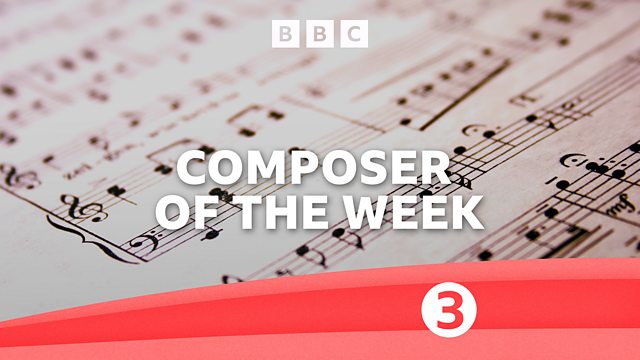
Between Two Cities
Donald Macleod explores Mendelssohn’s exhausting schedule in the year 1843.
Donald Macleod explores Mendelssohn’s exhausting schedule in the year 1843.
Felix Mendelssohn has been described as one of the most gifted and versatile musical prodigies ever, becoming a prolific composer writing in many genres from incidental stage and symphonic music, to works for chamber ensembles and solo piano. However, his was a life which was cut short in his thirties. Towards the end of his life, he was at the height of his fame, and at the forefront of German music not only as a composer, but also as conductor, pianist, organist and teacher. In this series, Composer of the Week focuses upon the final five years of Mendelssohn’s life, as Donald Macleod surveys the many iconic works he composed during that period, and journeys through Mendelssohn’s extremely hectic schedule which undoubtably led to the composer's early demise.
Mendelssohn began the year 1843 in a rather sombre tone, as only a few days before his mother had suddenly died. Yet as the year progressed, Mendelssohn demonstrated his usual characteristic of undertaking a great too many things, frequently commuting between Leipzig and Berlin to fulfil is heavy commitments in both cities. He was a guiding force behind the newly opened Conservatory in Berlin, and even when he asked for an audience with King Friedrich Wilhelm IV of Prussia so he could resign some of his duties in the capitol, the king instead promoted Mendelssohn so he now was responsible for the improvement of sacred singing and music. During this period he did find time to compose some of his most iconic works, including his second cello sonata, and the incidental music for A Midsummer Night’s Dream.
Lied ohne Worte in E minor, Op 62 No 3 (Trauermarsch)
Daniel Barenboim, piano
Paulus, Op 36 (excerpt)
Susan Gritton, soprano
Barry Banks, tenor
Peter Coleman-Wright, bass
����ý National Chorus of Wales
����ý National Orchestra of Wales
Richard Hickox, conductor,
Cello Sonata No 2 in D, Op 58
Mischa Maisky, cello
Sergio Tiempo, piano
A Midsummer Night’s Dream, Op 61 (excerpt)
Sandrine Piau, soprano
Delphine Collot, soprano
Choir of the Chapel Royal
Collegium Vocale
Orchestra of the Champs Elysees
Philippe Herreweghe, director
Produced by Luke Whitlock, for ����ý Wales
Last on
More episodes
Previous
You are at the first episode
Music Played
-
![]()
Felix Mendelssohn
Lied ohne Worte in E minor, Op 62 No 3 (Trauermarsch)
Performer: Daniel Barenboim.- DEUTSCHE GRAMMOPHON : 453-063 2.
- DEUTSCHE GRAMMOPHON.
- 3.
-
![]()
Felix Mendelssohn
Paulus, Op 36 (excerpt)
Singer: Susan Gritton. Singer: Barry Banks. Singer: Peter Coleman-Wright. Choir: ����ý National Chorus of Wales. Orchestra: ����ý National Orchestra of Wales. Conductor: Richard Hickox.- Chandos CHAN9882.
- Chandos.
- 1.
-
![]()
Felix Mendelssohn
Cello Sonata No 2 in D, Op 58
Performer: Mischa Maisky. Performer: Sergio Tiempo.- DG E4715652.
- DEUTSCHE GRAMMOPHON.
- 1.
-
![]()
Felix Mendelssohn
A Midsummer Night's Dream, Op 61 (excerpt)
Singer: Sandrine Piau. Singer: Delphine Collot. Ensemble: La Chapelle Royale. Choir: Collegium Vocale Gent. Orchestra: Champs-Elysees Orchestra. Conductor: Philippe Herreweghe.- HARMONIA MUNDI : HMC-901502.
- HARMONIA MUNDI.
- 7.
Broadcasts
- Mon 22 Feb 2021 12:00����ý Radio 3
- Tue 23 Aug 2022 13:00����ý Radio 3
Beethoven Unleashed – the box set
What was really wrong with Beethoven?
Composers A to Z
Who knew? Five eye-opening stories from Composer of the Week
Five reasons why we love Parry's Jerusalem
What is the strange power of Jerusalem which makes strong men weep?
A man out of time – why Parry's music and ideas were at odds with his image...
The composer of Jerusalem was very far from the conservative figure his image suggests.
Composer Help Page
Find resources and contacts for composers from within the classical music industry.





